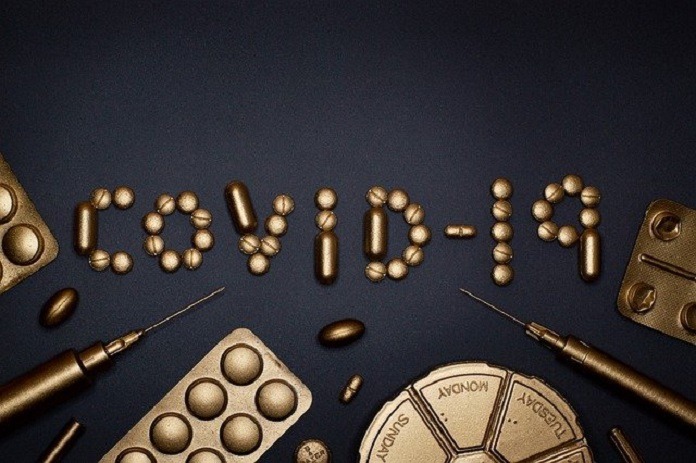An already established drug – fenofibrate – may reduce COVID-19 (SARS-CoV-2) infection by up to 70% according to a recent study.1
Fenofibrate, which converts to fenofibric acid in the body, is commonly used to lower LDL – “bad” – cholesterol and was originally approved by the F.D.A. in 1993.2
Its ability to fight COVID-19 could add to the existing tools used to fight COVID-19.
The study, published in Frontiers in Pharmacology, identifies the significance of being able to use fenofibrate for COVID-19 in populations for whom a COVID-19 vaccination is not suitable and in those hospitalized with a radical COVID-19 variant.
The study also highlights that although the vaccinated population is increasing daily, there is uncertainty surrounding how long immunity will last.
Having fenofibrate available to treat symptomatic patients and to reduce the spread of infection could provide relief.
Co-author of the study Dr. Alan Richardson commented, “Whilst vaccination has been shown to reduce infection rates and severity of disease, we are as yet unsure of the strength and duration of the response.
Therapies are still urgently needed to manage COVID-19 patients who develop symptoms or require hospitalization.”3
Fenofibrate prevents the interaction between the COVID-19 virus and human cells
The COVID-19 virus has a viral spike protein – a protein protruding from its outer casing – with a receptor binding domain (RBD).
This spike protein clasps onto human cells when the RBD interacts with the human angiotensin-converting enzyme 2 (ACE2). This interaction allows the virus to enter human cells and leads to infection.4,5
Fenofibric acid, a metabolite of fenofibrate, was found to reduce the spike protein interaction with ACE2.1
The stability of the receptor binding domain of the spike protein was also decreased upon the addition of fenofibric acid.
These results suggest that fenofibrate may be useful in controlling COVID-19 infection.
Fenofibrate may reduce primary and secondary COVID-19 infection
The study measured the activity of fenofibrate and fenofibric acid on the infection rate of COVID-19 in cells at both 24 and 48 hours after exposure.
The 24-hour mark was used to indicate the primary response – infection from the initial viral components.
The 48-hour mark was used to analyze the secondary response – infection from reproduced viral particles released from infected cells.
For the COVID-19 virus sourced from England, there was approximately a 60% decrease in cell infection by the virus compared to control after 24 hours.1
At the 48-hour mark, the infection rate similarly decreased. For the COVID-19 virus sourced from Italy, fenofibric acid showed a significant decrease in infection.1
These experiments were completed using concentrations of fenofibrate that are clinically achievable in humans.
This means that the results show promise for using fenofibrate for treating COVID-19 in humans.
Clinical trials are needed
Fenofibrate is generally considered safe,1 and has been suggested as a treatment for COVID-19 in other research7.
Co-author Dr. Elisa Vicenzi commented, “Given that fenofibrate is an oral drug which is very cheap and available worldwide, together with its extensive history of clinical use and its good safety profile, our data has global implications – especially in low-middle income countries and in those individuals for whom vaccines are not recommended or suitable such as children, those with hyper-immune disorders and those using immune-suppressants.”3
There are risks associated with taking fenofibrate for COVID-19, including potential drug-drug interactions.
The co-authors recommend first testing fenofibrate in symptomatic non-hospitalized COVID-19 patients to observe a reduction in symptom severity and to reduce the spread of infection.
References
- Davies, S.P. et al. (2021). The Hyperlipidaemic Drug Fenofibrate Significantly Reduces Infection by SARS-CoV-2 in Cell Culture Models. Frontiers in Pharmacology. Doi: 10.3389/fphar.2021.660490.
- Downing, N.S. et al. (2013). How Abbott’s Fenofibrate Franchise Avoided Generic Competition. Archives of Internal Medicine; 172(9): 724-730. Doi: 10.1001/archinternmed.2012.187.
- “Licensed drug could reduce SARS-CoV-2 infection by up to 70 per cent, reveals study”. (2021). EurekAlert! Accessed on August 14, 2021. Retrieved from https://www.eurekalert.org/news-releases/924448.
- Clausen, T. M. et al. (2020). SARS-CoV-2 Infection Depends on Cellular Heparan Sulfate and ACE2. Cell; 183(4), 1043–e15. doi:10.1016/j.cell.2020.09.033.
- Hoffmann, M. et al. (2020). SARS-CoV-2 Cell Entry Depends on ACE2 and TMPRSS2 and Is Blocked by a Clinically Proven Protease Inhibitor. Cell; 181(2), 271–e8. doi:10.1016/j.cell.2020.02.052.
- Yan, R. et al. (2020). Structural Basis for the Recognition of SARS-CoV-2 by Full-Length Human ACE2. Science; 367 (6485), 1444–1448. doi:10.1126/science.abb2762.
- Buschard, K. (2020). Fenofibrate Increases the Amount of Sulfatide Which Seems Beneficial against Covid-19. Medical Hypotheses; 143: 110127. doi:10.1016/j.mehy.2020.110127.
- Image by Miguel Á. Padriñán from Pixabay



